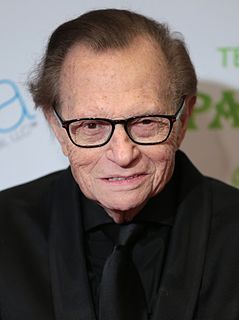A Quote by James Madison
The two great points of difference between a democracy and a republic are: first, the delegation of the government, in the latter,to a small number of citizens elected by the rest; secondly, the greater number of citizens and greater sphere of country over which the latter may be extended.
Related Quotes
[T]he delegation of the government, in [a republic], to a small number of citizens elected by the rest . . . [is] to refine and enlarge the public views by passing them through the medium of a chosen body of citizens, whose wisdom may best discern the true interest of their country and whose patriotism and love of justice will be least likely to sacrifice it to temporary or partial considerations.
Historically, measures initially directed at foreign nationals have subsequently been extended to citizens. What happens is foreign nationals are the easiest targets and most vulnerable targets, so they're the initial targets. But government officials, once you give them a certain kind of power over individuals, they get used to it and almost inevitably seek out ways to extend it. You will see that virtually every form of repressive government measure that has been employed in the United States against citizens started out as an antialien measure and was then extended to citizens.
Is it just or reasonable, that most voices against the main end of government should enslave the less number that would be free? more just it is, doubtless, if it come to force, that a less number compel a greater to retain, which can be no wrong to them, their liberty, than that a greater number, for the pleasure of their baseness, compel a less most injuriously to be their fellow-slaves. They who seek nothing but their own just liberty, have always right to win it and to keep it, whenever they have power, be the voices never so numerous that oppose it.
In this world, which is so plainly the antechamber of another, there are no happy men. The true division of humanity is between those who live in light and those who live in darkness. Our aim must be to diminish the number of the latter and increase the number of the former. That is why we demand education and knowledge.
In the United States we have concentrated tremendous sums of money on the educational plant, seemingly with the idea that the right number of buildings will turn out the right number of graduates. Yet the teachers who actually instruct the future citizens of our country are more often than not miserably paid. If in the future we find ourselves with a lot of fourth-rate citizens, we have only ourselves to blame.
If exclusive privileges were not granted, and if the financial system would not tend to concentrate wealth, there would be few great fortunes and no quick wealth. When the means of growing rich is divided between a greater number of citizens, wealth will also be more evenly distributed; extreme poverty and extreme wealth would be also rare.
Our Lord reserved to Himself certain things which He would do in due time in a manner outside the course and order of nature, so that they would wonder and be astonished at seeing not great but unusual things, who are unmoved by things daily seen. For the government of the world is a greater miracle than feeding five thousand men from five loaves; yet at the former no one wonders, the latter astonishes all men: not as a greater wonder, but as a rarer.
In a democracy the majority of citizens is capable of exercising the most cruel oppressions upon the minority...and that oppression of the majority will extend to far great number, and will be carried on with much greater fury, than can almost ever be apprehended from the dominion of a single sceptre. Under a cruel prince they have the plaudits of the people to animate their generous constancy under their sufferings; but those who are subjected to wrong under multitudes are deprived of all external consolation: they seem deserted by mankind, overpowered by a conspiracy of their whole species.
Many people believe that the grains of sand are infinite in multitude ... Others think that although their number is not without limit, no number can ever be named which will be greater than the number of grains of sand. But I shall try to prove to you that among the numbers which I have named there are those which exceed the number of grains in a heap of sand the size not only of the earth, but even of the universe
































